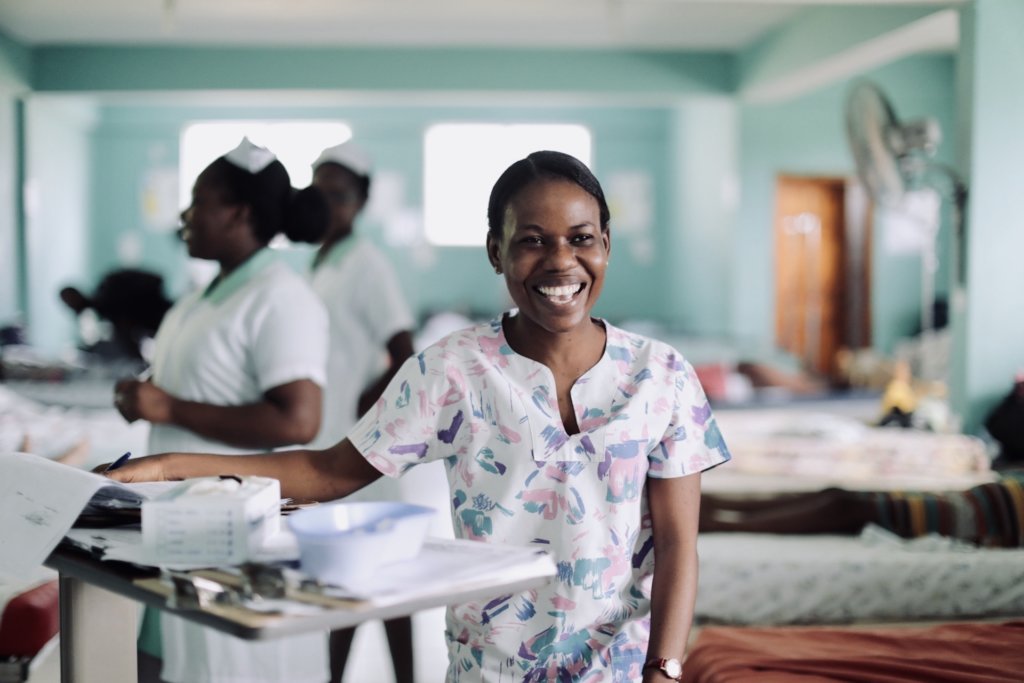By Tim Holmes | Fundraising Coordinator
As part of some recent filming in our maternity unit, we spoke to Nurse Darline who gave us an insight in to life as a nurse, looking after pregnant women and their babies every day, in Haiti. We wanted to share some of the powerful things she said with you.
The number of emergency c-sections at our hospital is high. Nurse Darline explains that this is because they are often faced with many birth complications. There are many reasons for that in Haiti. Health education is poor with many of mothers in remote areas not aware of, or trusting, modern healthcare. The traditional culture is for mothers to give birth at home, but conditions are often poor with no medical aid, so complications can mean life-threatening situations. But often the reason is cost - not just the hospital fees, but even the cost of getting to hospital means many mothers can’t or won’t seek the medical help they need.
The result of all these reasons is many mothers who are rushed to hospital in an emergency at the last minute when their labour goes wrong. This often places mother and baby and high risk of dying. Even the journey to hospital on long bumpy roads can introduce further dangerous complications by the time the mother arrives.
Nurse Darlene explains that at our hospital, the team often have to improvise and come up with solutions to these extreme situations. Often immediate c-sections give mother and baby the best chance.
She is sure that the staff are providing hope for mothers arriving in ‘hopeless’ situations and thankfully that hope is often turned into celebration despite the many challenges of working in Haiti.
This is why we are working to raise funds to expand and improve our maternity and neonatal units so that more mothers and babies can the receive the best care available in North Haiti. More hope for more people.
It is also the reason why our community health programmes are so important to educate the population about the healthcare available, screen women for high risk cases, and refer those in need for timely intervention.
Your support is making these programmes possible and together we are bringing hope to those without any. Thank you.
Project reports on GlobalGiving are posted directly to globalgiving.org by Project Leaders as they are completed, generally every 3-4 months. To protect the integrity of these documents, GlobalGiving does not alter them; therefore you may find some language or formatting issues.
If you donate to this project or have donated to this project, you can recieve an email when this project posts a report. You can also subscribe for reports without donating.
